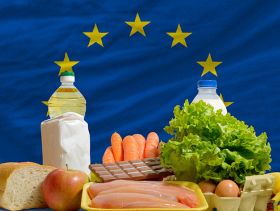 ulture sector organisation Copa-Cogeca has welcomed the fact that the European Commission has recognised that abusive and unfair practices are present in the food chain.
ulture sector organisation Copa-Cogeca has welcomed the fact that the European Commission has recognised that abusive and unfair practices are present in the food chain.However, Copa-Cogeca said that a much more ambitious and stronger approach is needed than the measures contained in the recently published European Commission Communication on Unfair Trading Practices (UTPs) in the food chain.
“The harmful impact of unfair practices on farmers and agri-cooperatives is all too clear. I am glad that the Commission acknowledges that we need to look at ways to protect producers and cooperatives from these. But I am very disappointed at the lack of ambition in the Communication,” Copa-Cogeca Secretary-General Pekka Pesonen warned.
“What we need are measures capable of curbing UTPs across the EU and preventing a fragmentation of the Single Market.
“In view of the different and sometimes diverging approaches to this problem in Member States, it is unacceptable that the Commission, recognising the possible impact of UTPs on cross-border trade, does not assume its responsibilities and propose measures to create an EU-wide level playing field that enables the Single Market to work better.
“The absence of regulatory action at EU level in this Communication leads to a fragmented approach capable of disrupting the Single Market.”
He added: “Copa-Cogeca has actively engaged with other stakeholders in the food chain and we have all agreed on the principles of good practice along the food chain. Our members and the Commission are well aware of the existing “climate of fear” amongst producers about these. That is why we have been calling for effective enforcement.”
But he said that the Communication does not provide tools for Member States to ensure that the rules are properly enforced. The Single Market is currently fragmented as a result of uncoordinated actions and the occurrence of unfair trading practices such as “forensic accounting” in the UK. A number of legal procedures have also been opened in Portugal due to UTPs.
Relying solely on a purely voluntary system, as suggested in this Communication, to deal with unfair trading practices does not provide farmers or cooperatives the conditions that they urgently need to make their complaints anonymously and reduce the fear that they have of retaliatory action by their clients. The absence of enforcement of the rules by an independent third-party authority capable of applying sanctions in case of non-compliance with the codes of good practice is one of the main weaknesses of any voluntary system. And the Commission recognises this in the Communication, stating “that there are limits to how far a self-regulatory initiative can go in providing for a dispute resolution mechanism” .
Copa-Cogeca believes that a mixed system combining voluntary codes with legislation enforced by an independent third party authority is the best way forward to ensure a fair, transparent, sustainable and functional food supply chain throughout the EU to the benefit of all actors in the chain, including consumers.
Copa-Cogeca remains open to dialogue and is willing to consider any proposals that deal with our concerns.
Wrapping up, Mr Pesonen said: “Farmers and agri-cooperatives want to be able to expand their businesses and prosper in the food supply chain.
“They want to work with their supply chain partners in a spirit of fairness for everyone, not in a climate of fear. Farmers and their agri-cooperatives work hard to produce safe and nutritious food. European Consumers deserve nothing less. This must be respected.”





